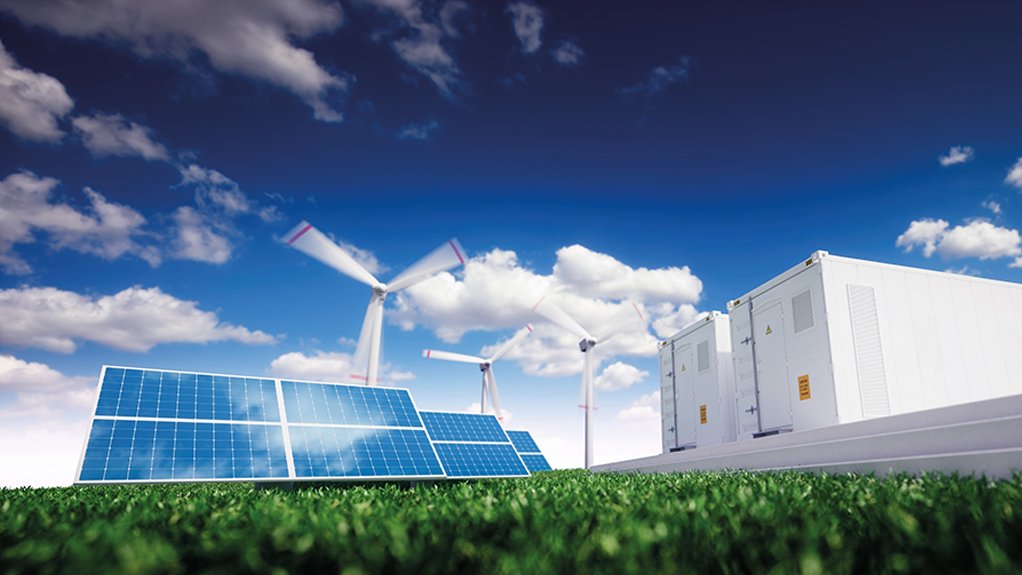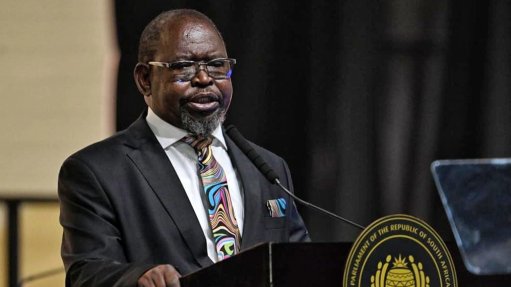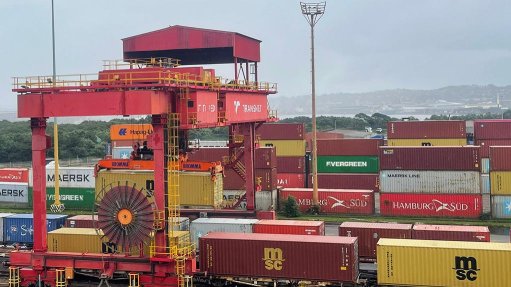Summit considers implications of an equitable, just energy transition
Amid a global emphasis on a just energy transition to help mitigate the impacts of climate change, issues such as exclusion and inequality should be addressed to ensure the transition is equitable.
During the fifth instalment of the Standard Bank Climate Summit, held on September 9, Standard Bank Group CEO Sim Tshabalala argued that, in the context of climate policy, exclusion and inequality slow down the transition in the Global South and create intense and effective resistance to transition in the developed world.
“Recent political changes have taught us, in a very emphatic way, that there can't be a sustainable transition unless it is also a just one,” he said, emphasising the need to ensure that the transition is fair, inclusive and visibly beneficial for all.
Tshabalala pointed out that energy policies worldwide had shifted from having a singular focus on the energy transition to a broader imperative focussing on energy security.
“People want reliable energy that they can afford right now, and they won't sacrifice that for abstractions like the climate or the future,” he said.
Additionally, he emphasised the importance of thinking about energy systems and about infrastructure more broadly, arguing that people want to see large-scale public investment directly making their lives better.
Tshabalala also discussed the need to build resilience to climate-induced challenges, such as extreme weather.
“People want to see investment making their lives safer.”
With this in mind, he noted that Standard Bank supported a just transition, focussing on driving Africa’s growth.
“We support a mix of renewable and transitional projects. We are completely clear that African countries have a right, indeed, a duty, to use their fossil fuels to lift themselves out of poverty, a point explicitly recognised in the Paris Agreement.”
Tshabalala noted that, earlier this year, Standard Bank updated its climate policy and restated its commitment to continue to reduce the share of its balance sheet that supports upstream oil and gas.
He said the company set a new and larger target for sustainable finance, adding that it planned to mobilise more than R450-billion of sustainable finance by 2028.
“We are already more than halfway to achieving this target, and we are unwavering in our commitment to achieve net zero in our portfolio by 2050,” he said.
Also speaking at the summit, Kenya President William Ruto argued that, as the global economy shifts to low carbon and digital production, Africa stands at a crossroads.
“With our resources, we can build prosperity on a green foundation, and it is encouraging that our banks are beginning to see this potential,” he said.
Ruto argued, however, that progress was slowed by mispriced risk, outdated narratives and costly capital, adding that financing remained a significant bottleneck.
To close the gap, he proposed pulling two levers.
This includes, firstly, innovative levies for predictable finance, where aviation and shipping charges can fund clean fuels, green ports, resilient infrastructure and logistics hubs.
Secondly, Ruto also called for debt fairness.
“We must also seize carbon markets, monetising our forests, mangroves and renewables to cut emissions and unlock finance. At the same time, we must industrialise,” said Ruto, noting that Africa's share of global manufacturing was below 2% and shrinking.
“Yet with renewable energy as our anchor, we can leapfrog into climate smart production.”
Ruto pointed out that, while global clean energy investments exceeded $2-trillion in 2024, Africa only attracted 2% of it.
“The time is now: unlock capital for renewables, adaptation and agriculture, infrastructure and conservation, the returns will be measured in growth, stability and human dignity.”
Meanwhile, Copenhagen Consensus Center president Dr Bjorn Lomborg discussed the importance of addressing climate change without moral panic, noting that many African countries, including South Africa, faced many other issues, such as poverty.
“We have to be careful that we don't worry so much about one issue that we forget all the others,” he said.
“Climate is not [the] end of the world, it's a problem. It's one of many problems we need to fix,” he added.
Additionally, Lomborg emphasised the importance of adopting realistic solutions, pointing out the expensive and unrealistic nature of some existing climate policies.
He thus argued for a greater emphasis on research and development for green energy as a long-term solution, noting that cheaper and greener technology, such as the adoption of fourth generation nuclear, would encourage a greater switch to renewables.
Moreover, Lomborg discussed the importance of adaptation to the climate problem, particularly in agriculture.
“What we should be doing . . . is invest a lot more in making sure we have the adaptation so we will . . . be able to provide much more food for the world, irrespective of what happens from climate and many other things.”
Lomborg also highlighted the importance of economic growth in reducing vulnerability to the impacts of climate change.
“Let's make sure we do the smart policies for climate, and let's make sure we also remember to worry about all the other things that are important if we're going to leave the world [in a] better [state].”
Article Enquiry
Email Article
Save Article
Feedback
To advertise email advertising@creamermedia.co.za or click here
Press Office
Announcements
What's On
Subscribe to improve your user experience...
Option 1 (equivalent of R125 a month):
Receive a weekly copy of Creamer Media's Engineering News & Mining Weekly magazine
(print copy for those in South Africa and e-magazine for those outside of South Africa)
Receive daily email newsletters
Access to full search results
Access archive of magazine back copies
Access to Projects in Progress
Access to ONE Research Report of your choice in PDF format
Option 2 (equivalent of R375 a month):
All benefits from Option 1
PLUS
Access to Creamer Media's Research Channel Africa for ALL Research Reports, in PDF format, on various industrial and mining sectors
including Electricity; Water; Energy Transition; Hydrogen; Roads, Rail and Ports; Coal; Gold; Platinum; Battery Metals; etc.
Already a subscriber?
Forgotten your password?
Receive weekly copy of Creamer Media's Engineering News & Mining Weekly magazine (print copy for those in South Africa and e-magazine for those outside of South Africa)
➕
Recieve daily email newsletters
➕
Access to full search results
➕
Access archive of magazine back copies
➕
Access to Projects in Progress
➕
Access to ONE Research Report of your choice in PDF format
RESEARCH CHANNEL AFRICA
R4500 (equivalent of R375 a month)
SUBSCRIBEAll benefits from Option 1
➕
Access to Creamer Media's Research Channel Africa for ALL Research Reports on various industrial and mining sectors, in PDF format, including on:
Electricity
➕
Water
➕
Energy Transition
➕
Hydrogen
➕
Roads, Rail and Ports
➕
Coal
➕
Gold
➕
Platinum
➕
Battery Metals
➕
etc.
Receive all benefits from Option 1 or Option 2 delivered to numerous people at your company
➕
Multiple User names and Passwords for simultaneous log-ins
➕
Intranet integration access to all in your organisation




















